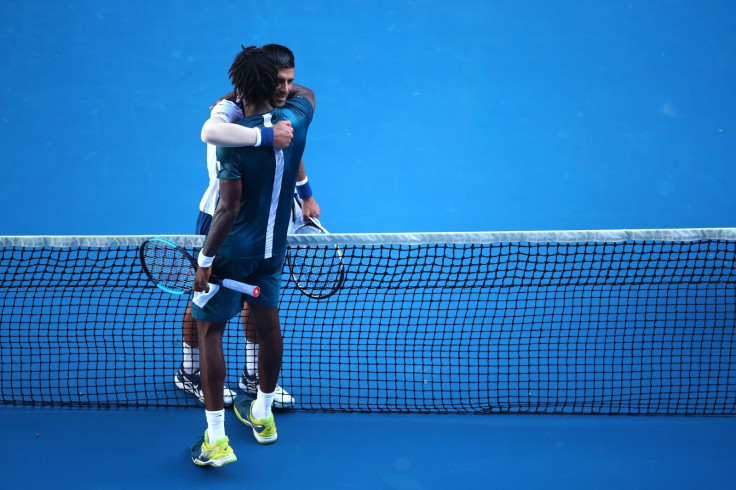'Did I request? No': Djokovic denies claims that he had asked for an afternoon game against Monfils
Novak Djokovic defeated Gael Monfils 4-6 6-3 6-1 6-1 in the second-round game at the Australian Open.

Novak Djokovic has refuted suggestions that he had asked his Australian Open second-round game against Gael Monfils to be played in the sweltering heat in Melbourne as it would be disadvantageous to his opponent.
The Frenchman was clearly feeling the conditions after winning the first set and struggled to get a foothold in the game as Djokovic came back in tremendous fashion to win the game 4-6 6-3 6-1 6-1. It was not a game for the record books as both players struggled to get on their stride in the excruciating conditions leading to 26 double faults and a heap of unforced errors.
However, the Serb held on to his nerve as Monfils suffered and took another step towards securing what would be his seventh Australian Open title. Djokovic is now looking to replicate Roger Federer's feat from last year when he came back from a six-month injury lay-off to win his 18th Grand Slam in Australia.
A similar situation surrounds the 12-time Grand Slam winner, who has not played competitive tennis since his loss in the quarter-finals at the 2017 Wimbledon. It was the first time in Djokovic's career that he had picked up a serious injury and the absence meant he dropped down to 12th in the world rankings.
However, he is now on to the third round where he will play Spain's 21st seed Albert Ramos-Vinolas on Saturday but after the game, he urged the tournament officials to look after the well being of the players in such hazardous conditions.
"Did I request? No," the Serb said, as quoted by the Metro, on suggestions he asked for an afternoon game. "I think it was just, you know, whatever they put me."
"Look, I mean, if we talk about rules, there is a rule about index, combination between temperature and humidity. I'm not so sure about that, to be honest.I think, you know, there are certain days where you just have to, as a tournament supervisor, recognise that you might need to give players few extra hours until it comes down," he added that supervisors should make sure that these conditions do not affect the health of the players.
"I understand there is a factor of tickets. If you don't play matches, people will be unhappy. You have to take into consideration different angles before making a big call like that.
"But, you know, people might say, 'Well, at this level you have to be as a professional tennis player fit. It's the beginning of the season. You kind of work and train hard to be able to sustain these kind of conditions, to be tough.'"






